Korean Social Etiquette and Manners: The Do’s and Don’ts You Should Know
Jul 12, 2023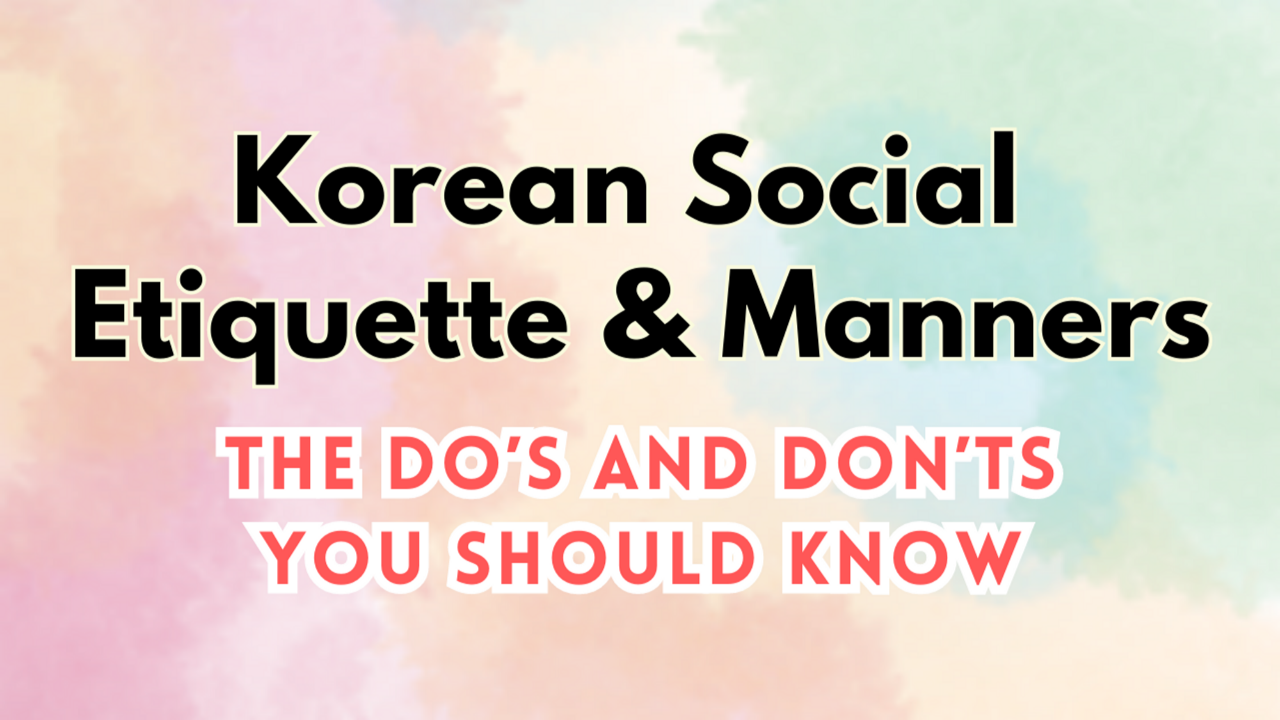
- Author: Good Job Korean team
- Editor: Good Job Korean team
👍Contents (Click to navigate instantly)
✅ The Art of Greeting: Bowing
✅ Polite Gestures and Body Language
✅ Conversation
✅ Exchanging Business Cards
✅ Dining Etiquette
✅ Drinking etiquette
✅ Gift-Giving
✅ Shoes Off In The House
✅ On Public Transportation
Similar to many Asian countries, Korea is a country with a rich cultural heritage and a strong emphasis on respect. Understanding and practicing proper etiquette and manners is essential when interacting with Koreans. In this blog post, we will explore several important aspects of Korean etiquette to ensure you do not offend anyone in Korea!
The Art of Greeting: Bowing
In Korean culture, bowing is a fundamental aspect of greeting others. The depth of the bow signifies the level of respect or formality. To someone older or of higher social status, it is more polite to give a lower bow. It is also common to bow when saying goodbye or expressing gratitude.
In contrast to some Western cultures, hugging or kissing on the cheek, especially between acquaintances, is generally considered inappropriate in Korean culture. Instead, it is more advisable to bow and shake hands.
Polite Gestures and Body Language

There are certain gestures and body language to convey politeness and respect in Korean culture. For example, when giving or receiving something with both hands or when shaking hands with someone older or of higher status, support your right forearm with your left hand to indicate respect.
As Korean society highly values personal space, excessive physical contact, especially between genders, may make things uncomfortable. Therefore, it is crucial to be mindful of these cultural norms to avoid unintentionally offending people.
Besides that, if you are dating in Korea, do note that showing a public display of affection or PDA is frowned upon. While holding hands is acceptable, kissing in public may attract judgmental eyes.
Conversation
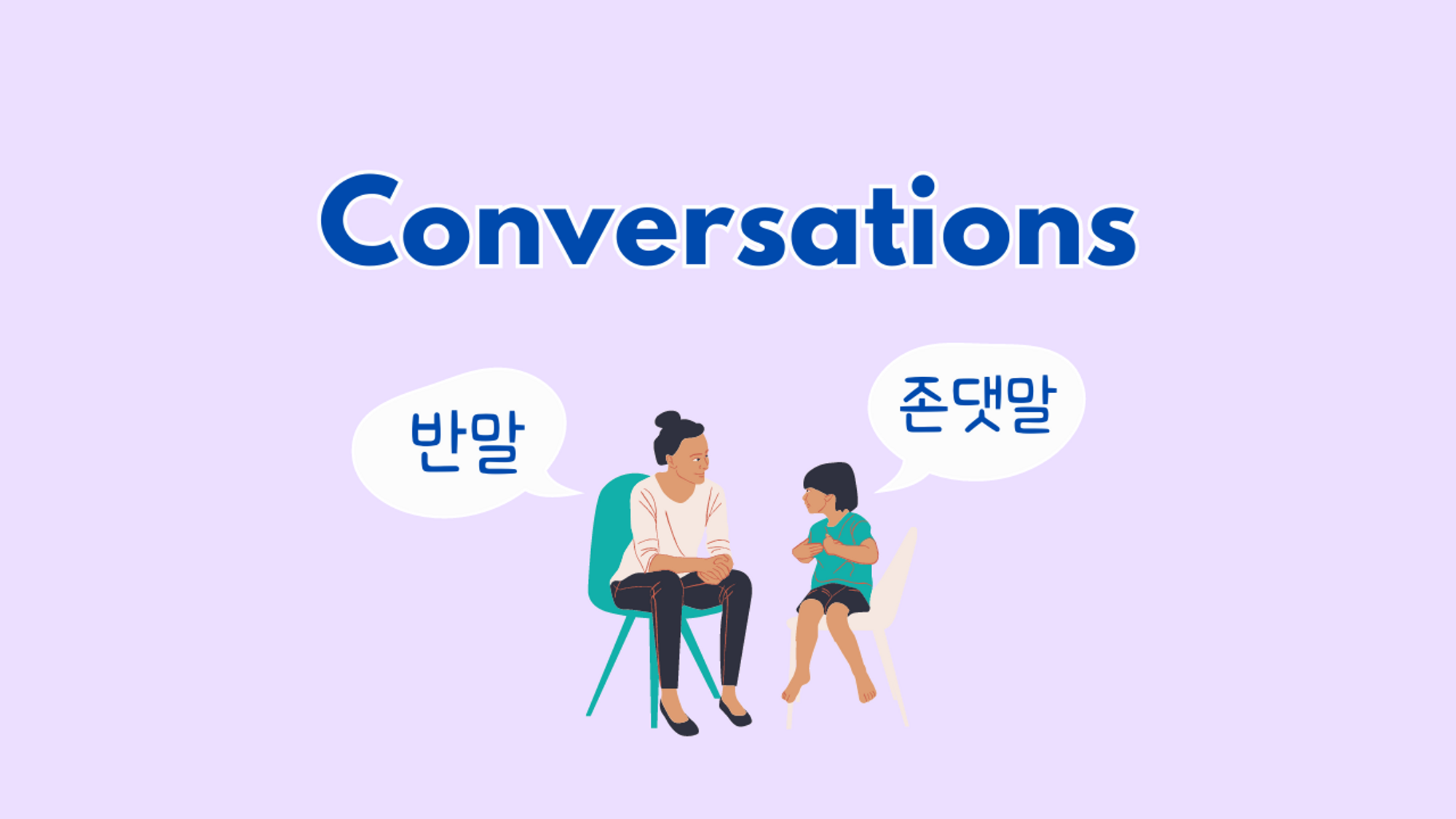
The Korean language has a unique system of honorifics, which reflects the hierarchical nature of Korean society. When speaking with someone older or of higher social status, it is vital to use respectful language forms known as 존댓말. For newly met people around your age, it is still safer to remain formal in your speaking until you are close enough to ask for permission to speak casually (반말). It demonstrates respect and politeness towards the person you are talking to.
In addition, it is unusual to refer to the person you are speaking to as you (너, 당신). Instead, refer to them using their names, position, or occupation, such as 의건 씨, 의진 씨, 선배님 (if the person you are talking to is your senior in school or at work), 사장님 (to your boss), 선생님 (to your teacher), 배우님 (if the person works as an actor), etc.
You may also refer to the person you are speaking to as 오빠 (older brother for female), 형 (older brother for male), 언니 (older sister for female), or 누나 (older sister for male), but do remember to check if they are okay with you calling them like this as some people may find it uncomfortable if they feel they are not close enough with you.
Exchanging Business Cards
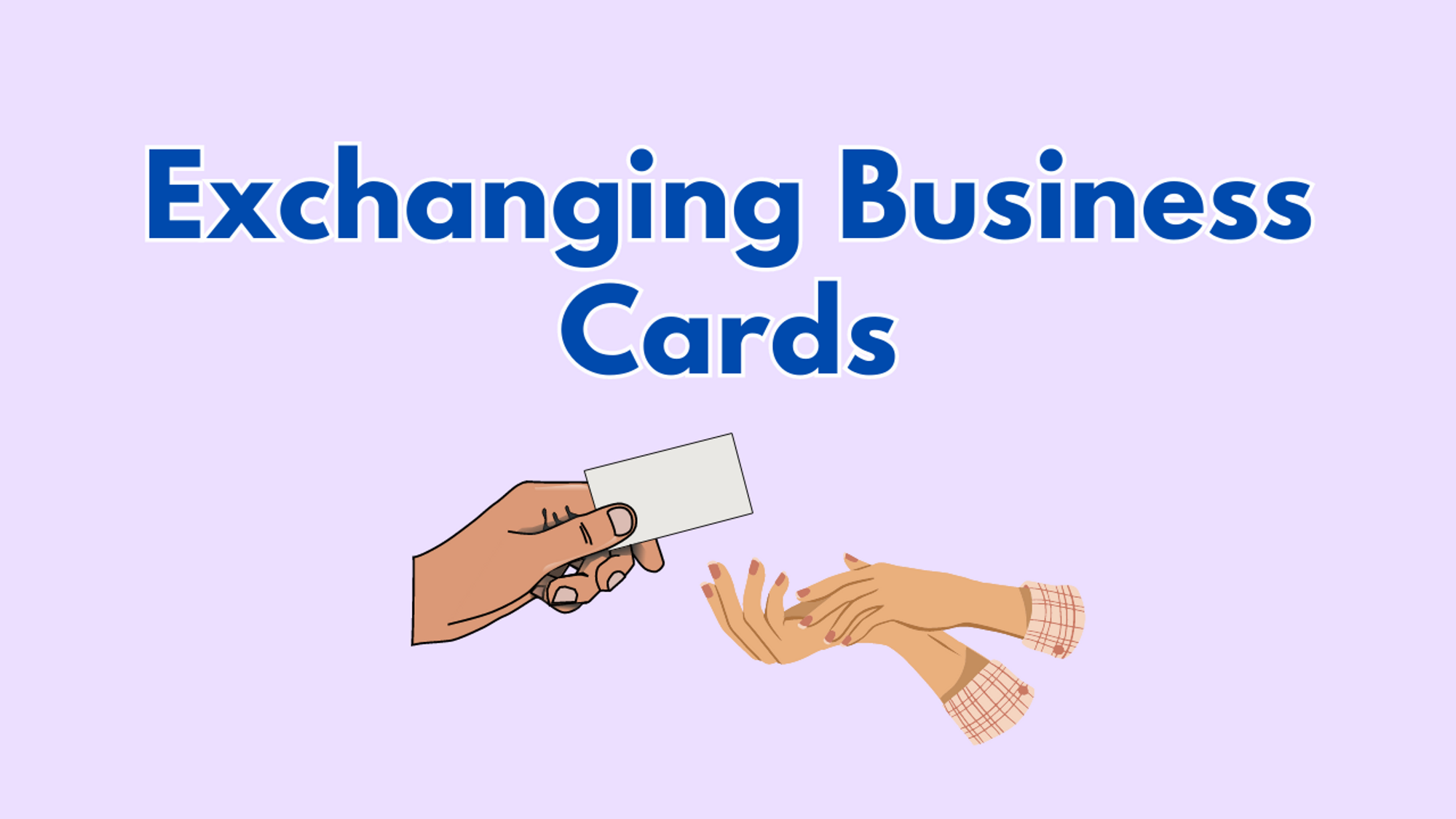
When conducting business in Korea, exchanging business cards is a common practice. To be polite, present and receive business cards with both hands and a slight bow. Taking a moment to read the card before putting it away shows respect for the person and their position.
Dining Etiquette
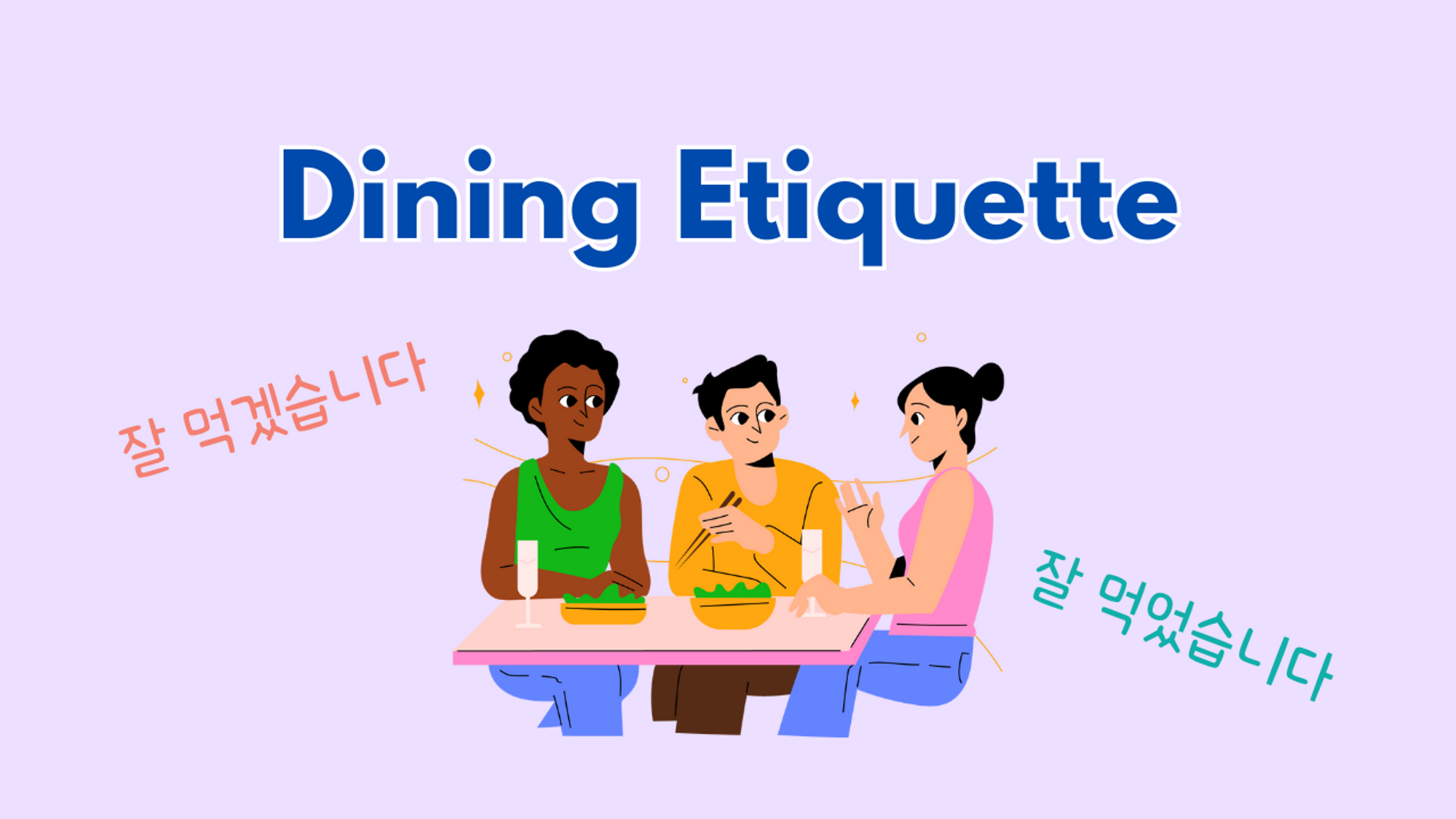
Korean cuisine is known for its delicious food and communal dining culture. When dining with Koreans, always wait for the eldest or the most senior person to start eating before the rest.
Before starting your meal, it is polite to show appreciation for your food and those who treat you or cook for you by saying 잘 먹겠습니다 meaning I will eat well. This phrase is suitable when eating at a Korean household or dining at a local restaurant when they serve the food. Upon finishing your meal or when you pay the bill, a simple 잘 먹었습니다 meaning I ate well, would make the host feel appreciated that you enjoyed the meal.
Drinking etiquette

Drinking is a popular social interaction activity in Korean society, whether with family, friends, colleagues, or during business dinners. It is always safer to wait for someone to pour you a drink first. Return the gesture, and if you are serving or receiving a drink from someone older or of higher status than you, you have to use both hands.
You may also notice in K-drama that sometimes they turn their heads away while drinking. It is a form of respect to not face the person you are drinking with, so turn your head away slightly and cover your drink while drinking.
Gift-Giving

Presenting gifts is an aspect of Korean culture, especially during special occasions or during a home visit. When offering a gift, do use both hands to show respect.
It is also important to note what should not be given as gifts, as certain items have negative meanings. For example, gifting white flowers or red-inked items is taboo as they are associated with funerals and have negative connotations. Instead, presenting items such as coffee, tea, traditional crafts, or fruit baskets is considered more appropriate and thoughtful.
Shoes Off In The House
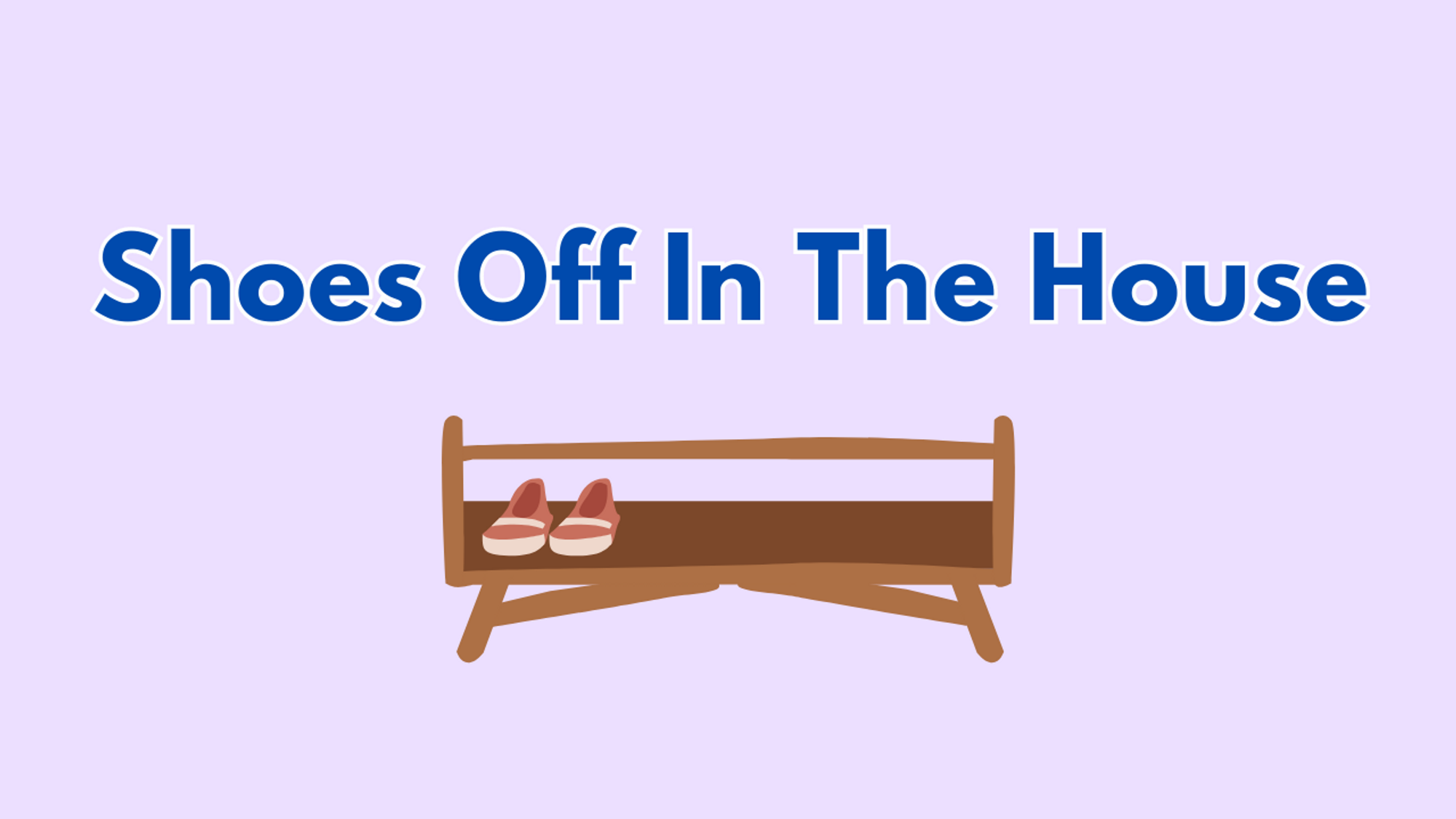
You may have seen many videos online where Asians make a huge fuss when someone goes into their homes with shoes on. Koreans, too, practice leaving their shoes at the door. When entering a Korean home or traditional establishment, it is customary to remove your shoes. It is a sign of respect and cleanliness.
You may notice a designated area for shoes at the entrance, where you may leave your shoes before entering the house. Your hosts may offer you indoor slippers. Otherwise, walking around in clean socks is acceptable.
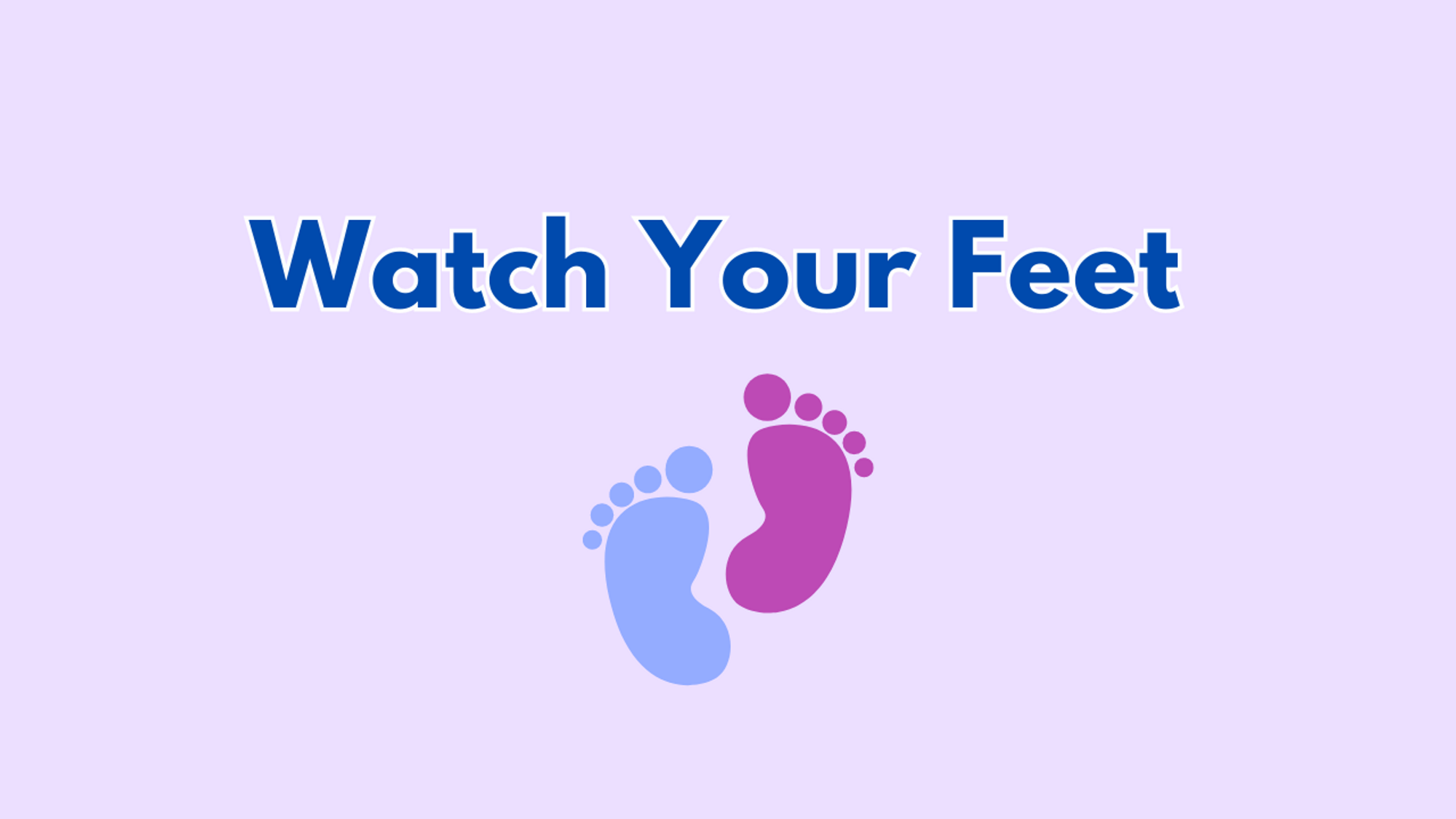
In Korean culture, the feet are considered the lowest and dirtiest part of the body. Hence, be mindful of where you place your feet and how you handle your footwear. Avoid pointing the soles of your feet towards others, as it is disrespectful.
On Public Transportation
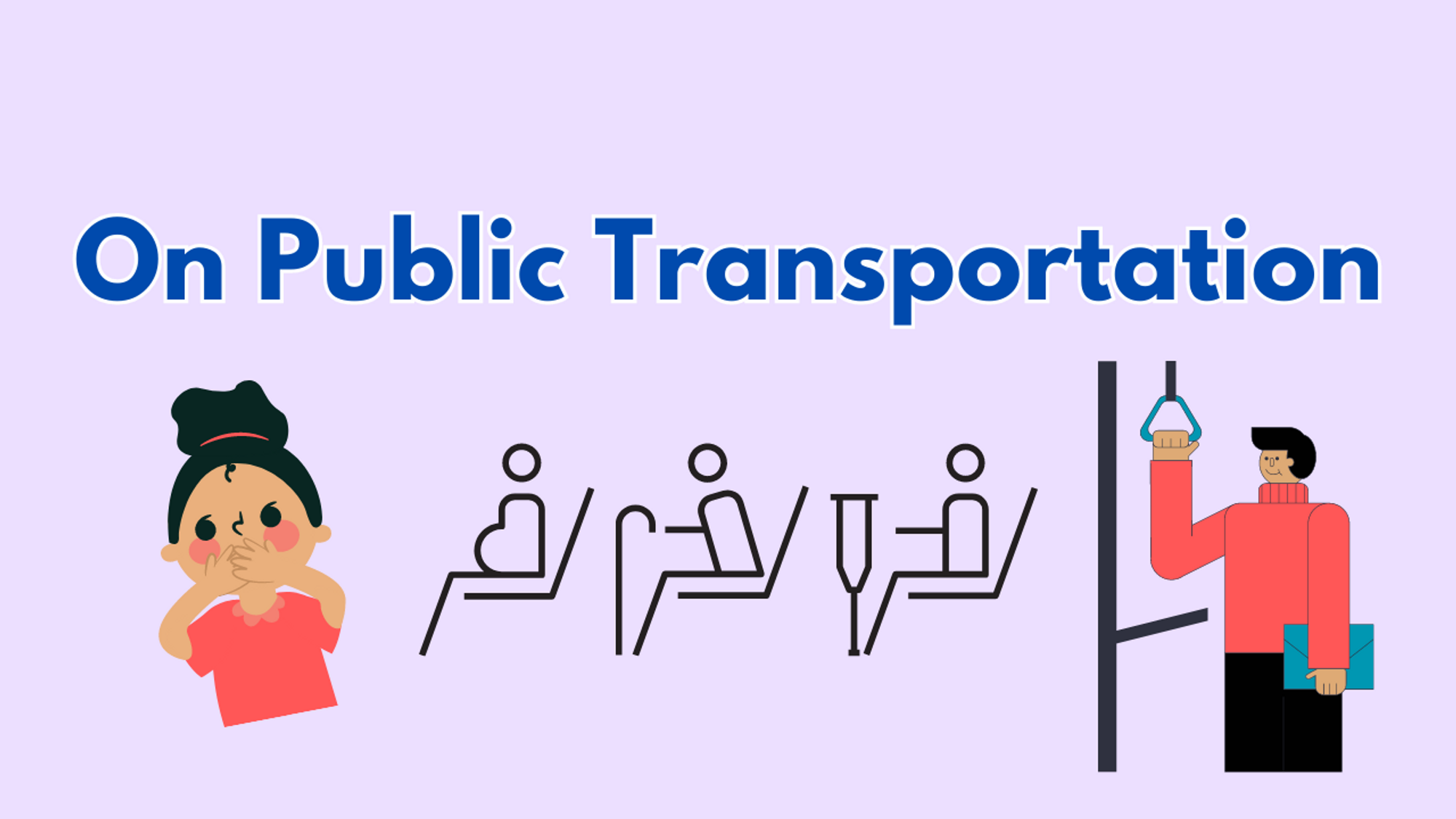
If you have visited Korea and taken public transportation such as the bus or the subway, you may notice that people try to keep as quiet as possible or to talk in a softer voice. This polite gesture is because Koreans generally appreciate quiet rides, especially on public transportation.
Besides that, while it is okay to sit on priority seatings for the elderly, disabled, or pregnant ladies when the bus or subway is not busy, it is manners to offer up your seat if you see someone who needs it more standing nearby, even if it is the regular seat.
In conclusion, Koreans have a rather strict and unique practice of manners and etiquette. Therefore, learning, understanding, and respecting these small rules will help you foster positive interactions and assimilate into their social circle.
- Author: Good Job Korean team
- Editor: Good Job Korean team





